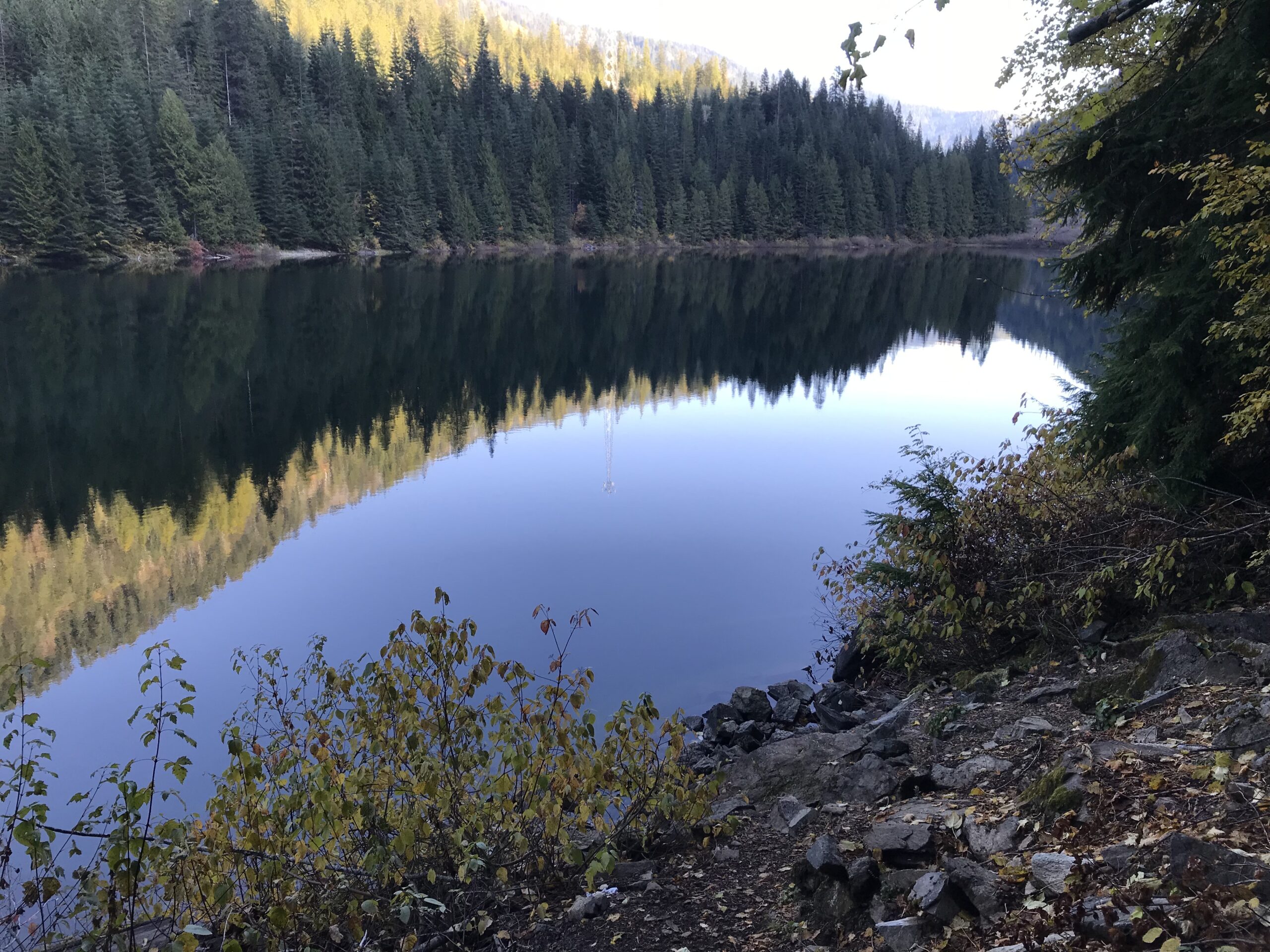A 49-hectare property near Nelson that was purchased through community effort to save it from logging is about to be turned over to the Nature Conservancy of Canada.
The Regional District of Central Kootenay is proceeding with transferring the land, which it acquired last year thanks to fundraising by the Cottonwood Lake Preservation Society
The three organizations have a memorandum of understanding to collaborate to protect the natural habitats and ecological features on the land.
The next steps include paying all related expenses and the stewardship endowment, finalizing the closing dates and signing of the land donation agreement.
Originally the RDCK owned 0.7 hectares, which it operated as a regional park. However, it only amounted to the footprint of the beach and the parking area. The rest was private land.
When the private owner started logging the land, the community mobilized to buy the land. In 2019, the RDCK bought 21.6 hectares, including land around the lake and the western flank, from the private land owner for $450,000. The purchase was partially funded with a $200,000 grant from Columbia Basin Trust.
“The majority of the public assumed the land around Cottonwood Lake was crown land and therefore would remain as is,” RDCK community service manager Joe Chirico said in a news release. “However, with the threat of logging by the private land owner, the RDCK responded to the need of the community. We identified the land was appropriate to expand our park service and made a reasonable deal.”
Despite the purchase, there was still another 49 hectares of private land in the area slated for logging. Concerns from the public ranged from land stability to wildlife habitat to the conservation of the popular recreation area. In response, the Cottonwood Lake Preservation Society was formed with the goal of raising enough money to purchase the land.
In 2019, the society negotiated a deal with the private land owner. It took all of 2020 and 2021 for the society to reach its fundraising goal which included additional funding from many sources totaling more than $325,000.
In turn, the memorandum was established where the RDCK would buy the land on behalf of the society and donate it to the Nature Conservancy.
“The community at large recognized the gravity of losing Cottonwood Lake and was hell-bent on making sure that it didn’t happen,” said Andrew McBurney of the society Society. “It was heartwarming to see and feel the citizenry, young and old, come together. The entire community pitched in”
The investment in Cottonwood Lake Regional Park does not stop at the purchase of the land. There is $610,000 allocated for numerous improvements over the next year to upgrade the park to be accessible to all segments of the population.
Upgrades include two new observation viewing platforms (one on each side of the lake), enhanced parking, a new washroom facility, and the majority of trails will be brought up to a universal access standard.
Since 2012, the RDCK has added seven regional parks totaling 106.8 hectares and acquired another 97 hectares of private land.





